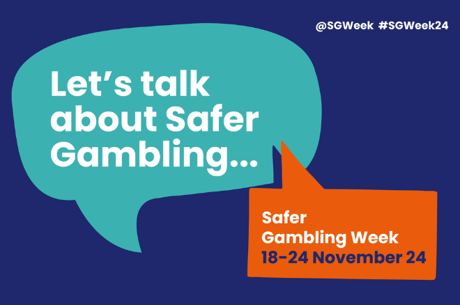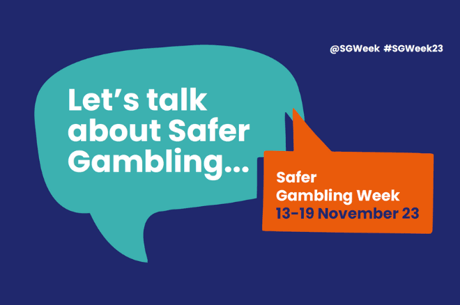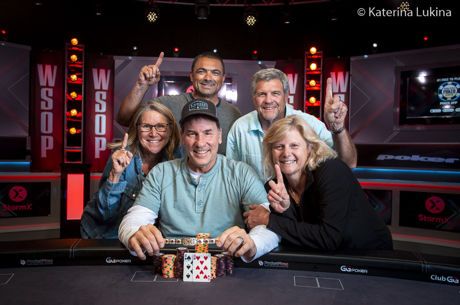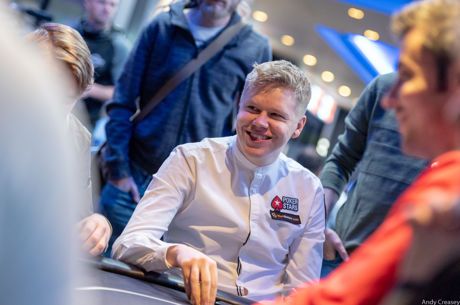The Poker Counselor's Corner (50)

Editor's Note: In addition to being a poker enthusiast, gambling columnist, and lecturer, John is a National Certified Counselor (NCC). He has a Master of Arts degree in Counseling from West Virginia University, and a Bachelor's degree in Psychology with a minor in Sociology from Lock Haven University. You can arrange for interviews, speaking engagements, or ask your question to "the Poker Counselor" at [email protected]
I can't seem to find a way to make money at limit games higher than $4/8. Many of my buddies are already playing $15/30 and $1000 buy-in No Limit. For me, I seem to hit the wall even at only $5/10. At $5/10, I have losing sessions about 7 times out of 10. I do fine with $4/8, $3/6, and $2/4. What do you think is going on? - Emailed by Marco P.
There may be several factors combining to help produce the "wall" that you referenced in the question. First, part of the problem may be a substantial increase in the skill level of your opposition. $4-8 and lower games seem to be pretty well-stocked with recreational and casual players, many of whom play with a cavalier & reckless style. Playing solid poker against those who are likely to ooze mistakes all night will assure at least small profits. As you climb the ladder of the poker levels, you are sure to find less and less unskilled and foolish players. At the $5/10 level, you'll find rather serious players who have a significant understanding of the game. For instance, take a moment to guess how many players at a $3/6 game can accurately calculate pot odds. Then take another moment to consider how many players at a regular $5/10 and $15/30 game can do so. Pot odd calculation is just one example of my point. Players at this higher level are more likely to understand and use position, conceal tells, read his/her opposition, bluff in a timely fashion, etc.
After you inspect the increasing skill level of your opponents, it is time to look inward to identify the shortcomings in your game. You've probably heard poker professionals talking about how they find a way to dissociate themselves from the money. To them, the chips do not really represent actual cash. Instead, the money that they buy-in with is the cost of admission. After that, the chips are tools used to play the game, as if they were pawns on a chess board. I would guess that this is not the case in your mindset. You still see the chips as your bankroll. As you climb into the $5-10 level, you are out of that psychological safety zone. You play differently than your usual style, as your comfort level has dipped dramatically. You tighten up your starting hand requirements. You drop drawing hands when you hit the bigger bets of the Turn or River. You are playing scared, and savvy poker players pounce upon scared money players like predators on weakened prey. Until your bankroll and your mind allow you to play at the next level up without such mental handicaps, it is best to stay within your comfort zone while your strengthen your game and your confidence. Your buddies may simply be a bit ahead of you in terms of poker mentality and maturity. As I've written before, poker is a lifelong marathon, not a sprint. Thus, take your time and allow the game to come to you. There is not a specific deadline for you to be a comfortable $20-40 player by a certain date. The game will come to you as you grow and learn.
I have a problem with tilting on bad beats that are not really bad beats. A good example happened last night when I played PokerStars. I called a pre-flop raise with my pocket 9's. The flop came out 10-8-7. My nines and open-ended straight seemed good, so I called his raise. The next card off was another 7. I called his raise. The next card off was a 6. I had the straight I was hoping for and ended up all in. The other guy called immediately and showed pocket 10's. I was behind the entire hand, but it still seemed like a seriously bad beat. I started steaming and dumped more money into my account. If my pocket Aces lose to 7-3 off-suit, I don't tilt as much as hands like the on I typed about above. What do you think? - emailed by Toothpicker
The true key in your question is digging down to the root of this emotional hiccup. It seems rather apparent that it is not unlucky cards that illicit your propensity to tilt, as it is instead your own poor play that is the ignition and fuel. An experienced poker player can often psychologically 'stomach' a good poker play that is outdrawn via terrible luck. There is no doubt that watching your big pocket pair getting outdrawn stings, it does not often produce a destructively strong steam. In your example, you cite pocket rockets falling to 7-3. If you go all-in pre-flop with aces and lose to a junk hand, you may curse the poker "gods" but you can never fault your own play. The anger and disgust is outward. When you misread, misplay, and completely miss the boat, your psyche and ego go under a serious attack. The anger, disappointment, and disbelief have no outlet except directly inward. It was your own mistakes that led to the loss of chips. In most cases, tilt is produced by being outplayed. The hit to our confidence is a bit traumatic, causing us to attempt to "make-up" for our mistake by coming harder on the next play. The dangerous cycle of attempting to reclaim pride from the bruised ego is a pervasive in poker. Remember that tilt does not come from bad beats; it comes from the emotional reaction of being beaten and being outplayed.
Ed Note: There's no way you will be outplayed by all the pros at Full Tilt...is there? Sign Up Today, and find out.








